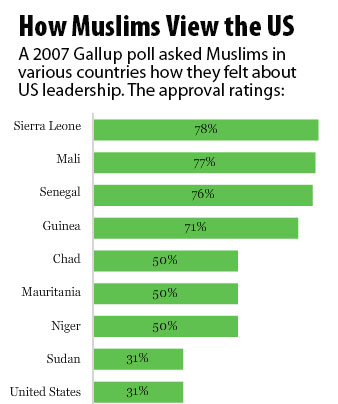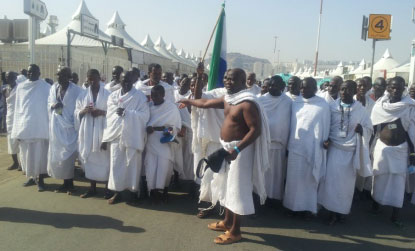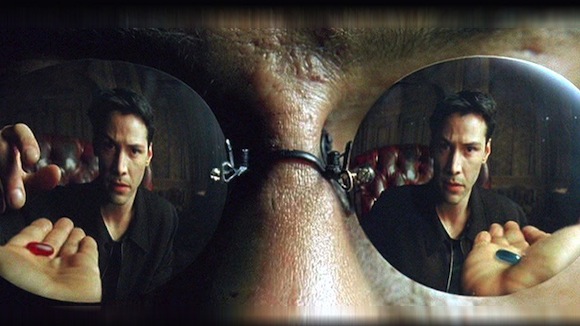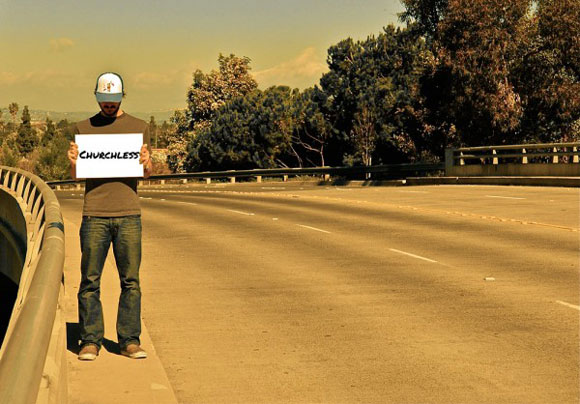I recently interviewed the United Brethren bishop in Sierra Leone, West Africa, and wrote several articles based on that interview. One of those articles dealt with the good relationship between Muslims and Christians in Sierra Leone.
Americans often take a one-size-fits-all view of Muslims. That size is typically a combination of Saudi Arabia and the Taliban. But that narrow, black-and-white image is by no means universal. Not even close.
Billy Simbo, a former bishop in Sierra Leone, wrote, “Those of us who do ministry in Sierra Leone are thankful for the religious tolerance that exists in Sierra Leone and the openness of people to receive the message of the Gospel. That is why it bothers us when we read about and hear of preachers in the US who have made it their mission to burn copies of the Qur’an and speak ill of Muslims. It makes our work harder and closes doors for us.”
Here is the article I published on UBCentral.org, our denominational news site.
We don’t think of Sierra Leone as a Muslim country—not with its background as a British colony and the long history of Christian missionary work. Yet 60% of Sierra Leoneans are Muslim. Only 20-30% of the people are Christians. The remaining 10-20% follow tribal religions.
Despite the predominance of Islam, Bishop John Pessima says Christians don’t encounter opposition from Muslims in Sierra Leone. At least not like in some other countries.
The lives of Christians and Muslims are intertwined in many ways, says Bishop Pessima. These intertwined relationships breed mutual respect and understanding.
“Even though I’m a Christian bishop, I have relatives who are Muslims. We sit and talk together. We live together, talk together, move together. We give them things during Ramadan season. Some Muslim clerics who are my friends.”
 He also gives a lot of credit to the country’s Inter-Religious Council, which consists of Christian and Muslim leaders. John is a member.
He also gives a lot of credit to the country’s Inter-Religious Council, which consists of Christian and Muslim leaders. John is a member.
“Whenever some national issue arises, we come together,” he says. “It was that group that went into the bush and spoke with the rebels about peace. Last year during the election some problems created a stalemate. The group met with the president and the opposition and said, ‘We want peace. Let’s talk it over.’”
The Inter-Religious Council of Sierra Leone formed in 1997, partly to avoid opening a religious dimension to the rebel war. Founding members included the Council of Churches of Sierra Leone, which represents 18 Protestant denominations (including the United Brethren), the Pentecostal Churches Council, the country’s three Roman Catholic dioceses, and various Sierra Leone Muslim groups—the Supreme Islamic Council, the Muslim Congress, the Council of Imans, the Federation of Muslim Women Associations, and the Islamic Missionary Union.
Soon after the IRCSL formed, a coup put a military junta in charge. Though the junta began targeting religious leaders, the IRCSL’s role is credited with preventing much worse conditions from prevailing. Later, as Bishop Pessima indicated, the IRCSL played a major role in peace talks with the rebel forces.
In July 2013, a United Nations human rights expert, Heiner Bielefeldt, visited Sierra Leone. He reported that the high degree of religious tolerance in Sierra Leone far exceeded his expectations. Everyone he talked to “agreed that religious communities, in particular Muslims and Christians, live peacefully and harmoniously side-by-side.”
He continued, “The unusual degree of interreligious tolerance and cooperation remains a great asset for rebuilding and developing the nation….People generally do not encounter problems when bearing witness to their faith in private or in public, and they can also invite others freely to join their community.”
He recalled that a Christian person remarked that when the church is overcrowded he might well decide to go to a mosque to pray. “Such a statement, which in many countries would be fairly unusual or even unthinkable, seems rather indicative of the tolerant situation in Sierra Leone,” he stated. “Likewise, Muslims told me they have no difficulty to pray in a Christian church.”

920 Muslims from Sierra Leone participated in the October 2013 pilgrimage to Mecca.
Sierra Leone Conference has pushed into the southern district of Pujehun to evangelize the Vai people. But even though Pujehun is predominantly Muslim, Bishop Pessima says, “There is no opposition.”
But are Muslims open to the Gospel?
“Oh yes,” he says emphatically.
He has heard Muslims refer to Islamic fanaticism in other countries, like Nigeria, where much bloodshed occurs. They tell him, “We are not hearing about Christians doing these things—it’s just Muslims. So I don’t think I’ll continue being Muslim.”
Also, the generosity of Christians makes an impact. “When it gets close to Easter, we encourage our churches to give out used clothing. That is something we’re doing for Pujehun. Christians are known for giving handouts. Even during the war, a number of people were led to Christianity because churches were giving things to people, like food and clothing.”
However, he is concerned about the Muslims clerics who come to Sierra Leone from other countries. They don’t share the mindset of native-born Muslims and Christians, and have the potential of injecting animosity into the relationship. But for now, Sierra Leone’s Muslims and Christians live together in healthy and peaceful coexistence.



 He also gives a lot of credit to the country’s Inter-Religious Council, which consists of Christian and Muslim leaders. John is a member.
He also gives a lot of credit to the country’s Inter-Religious Council, which consists of Christian and Muslim leaders. John is a member.






